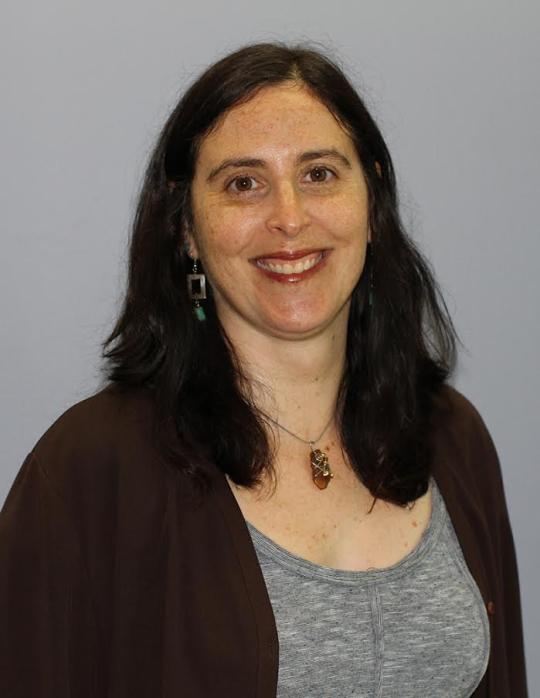A Post Election Open Letter to Faculty
Regardless of how you voted or how you feel about the outcome of the 2016 election, there is one thing we can agree on: 55% voter turnout is too low. And while data is still being processed, it does seem that the Millennial vote decreased in this election. When it comes to "prepar(ing) students to be learned persons who...have a broad cultural perspective...will be active citizens and leaders in society...and are concerned with contributing to the health and well-being of the world at large" (from SSU Mission Statement) [1], we have a lot to work to do.
We believe that higher education institutions have a unique role as vital change agents and architects of a diverse democracy, committed to educating students for responsible citizenship in ways that both deepen their education and improve the quality of community life.The Presidential election and the week following have brought the deep divides of this nation to a head, and highlighted numerous issues in our country. While we don't know what the coming weeks, months, and years will bring, we believe our collective work is critical. We will continue to support you in your work to build community partnerships, facilitate civil dialogue and discourse, and advocate for equity and justice. We believe that we need to continue to learn together - building bridges and finding ways to work and move forward as a nation. We need the strength of wisdom and wise action. Democracy is not easy and change can be difficult. [2]
Community engagement and service-learning can be part of the solution. Research shows that service-learning:
- Increases voting
- Has a positive effect on sense of social responsibility and citizenship skills
- Is associated with community involvement after college
- Reduces or supports stereotyping
- Facilitates cultural & racial understanding
- Has a positive effect on student personal development including moral development, interpersonal development, team work, leadership, and communication skills
- Improves student ability to apply what they've learned in real world, critical thinking, and problem analysis [3]
[Related: Democracy Beyond Voting]
While many of us think of service-learning classes providing direct service such as tutoring, serving food, or doing environmental work, not all service-learning is so direct.
"Encouragement of service as public work is one strategy higher education can use in fulfilling its civic mission to socialize society's future leaders....Public work is not the only antidote to this state of affairs, but it is especially promising insofar as it can promote the kind of informed, committed, and participatory citizenship the nation needs.[4]"
In fact, at San Jose State University, service-learners successfully campaigned for an increase in the minimum wage. If your goal is to increase civic engagement, service-learning can be a tool to do that.
"Students who came into the (political engagement) courses already very interested in politics and those who came in with very little political interest and experience both showed significant gains on just about every dimension, with larger and more consistent gains in the group that started with little prior interest...Two items showed no change in either of these groups (of students) - political ideology and political party affiliation. [5]"
If it's appropriate for your discipline, perhaps your students could work on issues of voter suppression and disenfranchisement? Or making Election Day a national holiday? Or doing a virtual interactive service-based program in partnership with an organization in a state with a different political culture from California's? If not, there are other ways to engage your students. As Edward Zlotkowski says, "There is probably no disciplinary area--from Architecture to Zoology--where service-learning cannot be fruitfully employed to strengthen students' ability to become active learners as well as active citizens." The CCE website has examples of service-learning in every SSU academic department. And of course, we're here to help you get started. Please email me and we'll talk.
If you're already using service-learning in your class, consider intentionally deepening your reflective analysis activities that focus on civic learning outcomes. And of course, we're here to help with this. Please email me and we'll talk.
If you're looking to get involved with organizations that support targeted populations, please email me and we'll talk.
Additionally, although social justice work is in SSU's DNA, please get involved with the CCE's planning process so you can help determine our future direction.
[Coming Soon: A Post Election Open Letter to Community Partners]
[Related: A Post Election Open Letter to Students]
Thank you to Ashley Simon and Claudia Sisomphou for your contributions to this letter.
Sonoma State University's mission (bold mine).
1. The mission of Sonoma State University is to prepare students to be learned persons who:
- have a foundation for life-long learning,
- have a broad cultural perspective,
- have a keen appreciation of intellectual and aesthetic achievements,
- will be active citizens and leaders in society,
- are capable of pursuing fulfilling careers in a changing world, and
- are concerned with contributing to the health and well-being of the world at large.
2. Ikeda, Elaine. "Re: A Message and Resources from California Campus Compact."
3. At a Glance: What We Know About the Effects of Service-Learning on College Students, Faculty, Institutions and Communities. Janet S. Eyler, Dwight E. Giles, Jr., Christine M. Stenson, and Charlene J. Gray.
4. Youniss, James (2011). Service, Public Work, & Respectful Public Citizens. Liberal Education, Vol. 97, No. 2.
5. The Place of Political Learning in College. Anne Colby. Spring/Summer 2008 Peer Review.

Author: Merith Weisman

